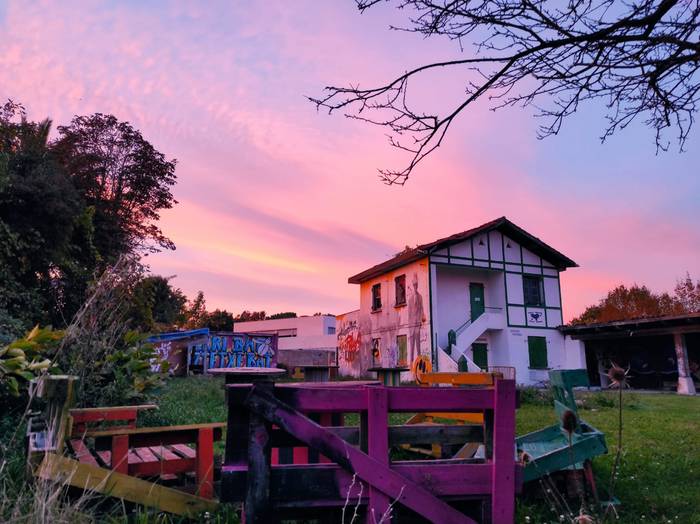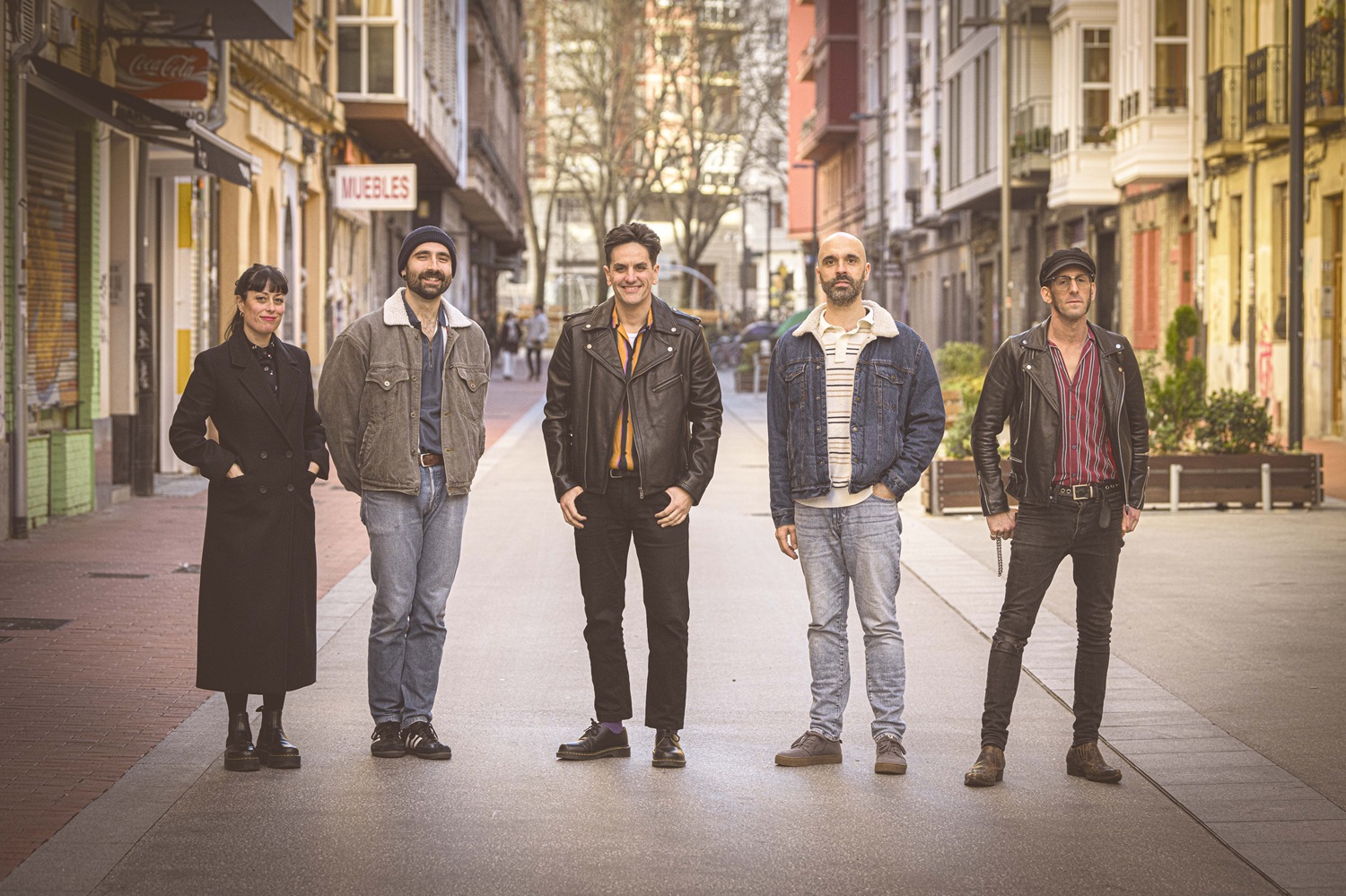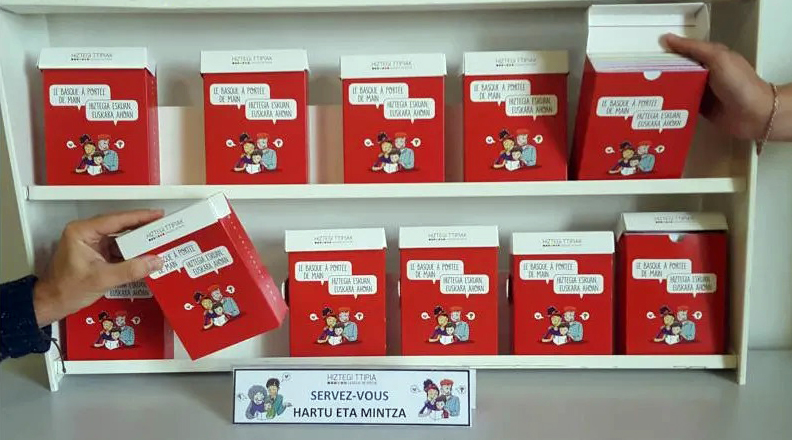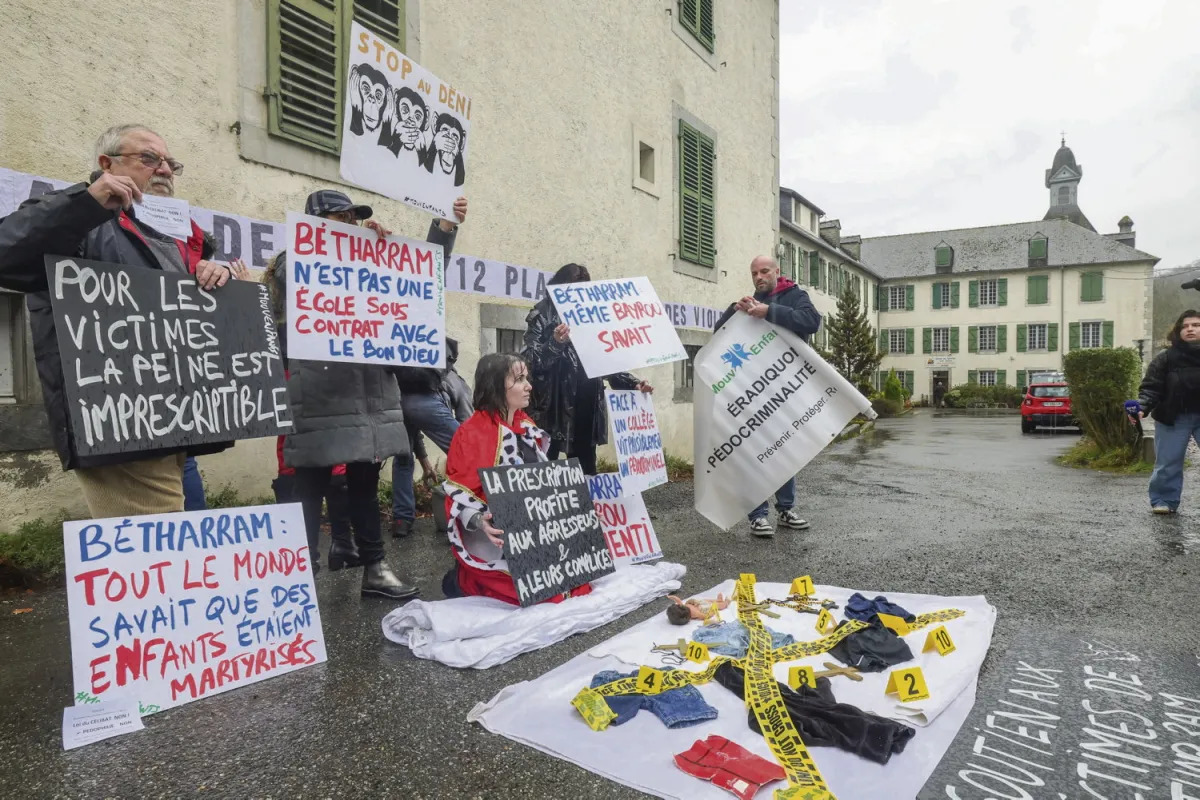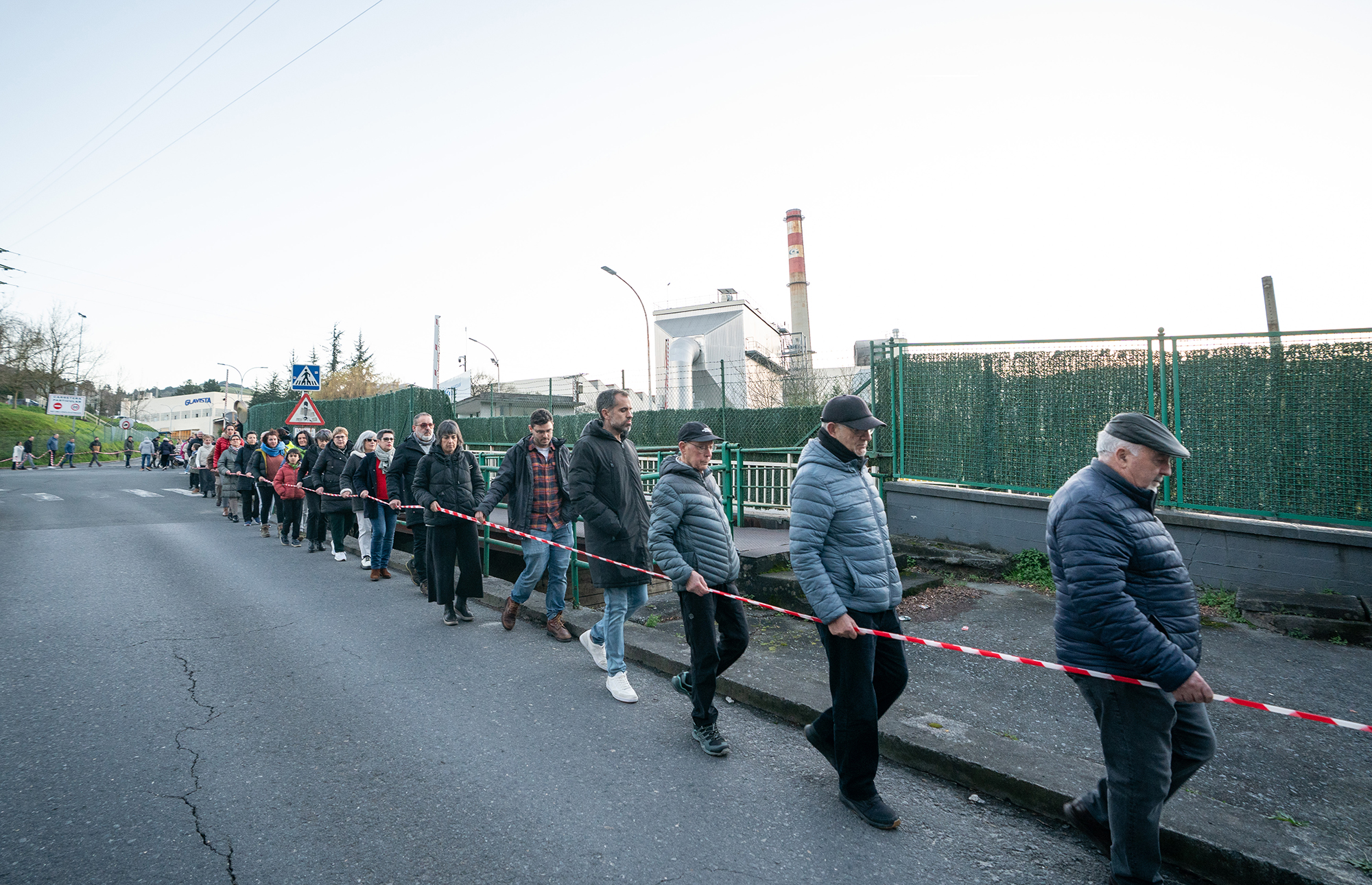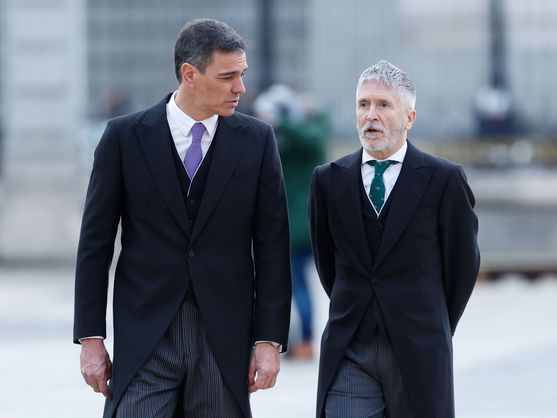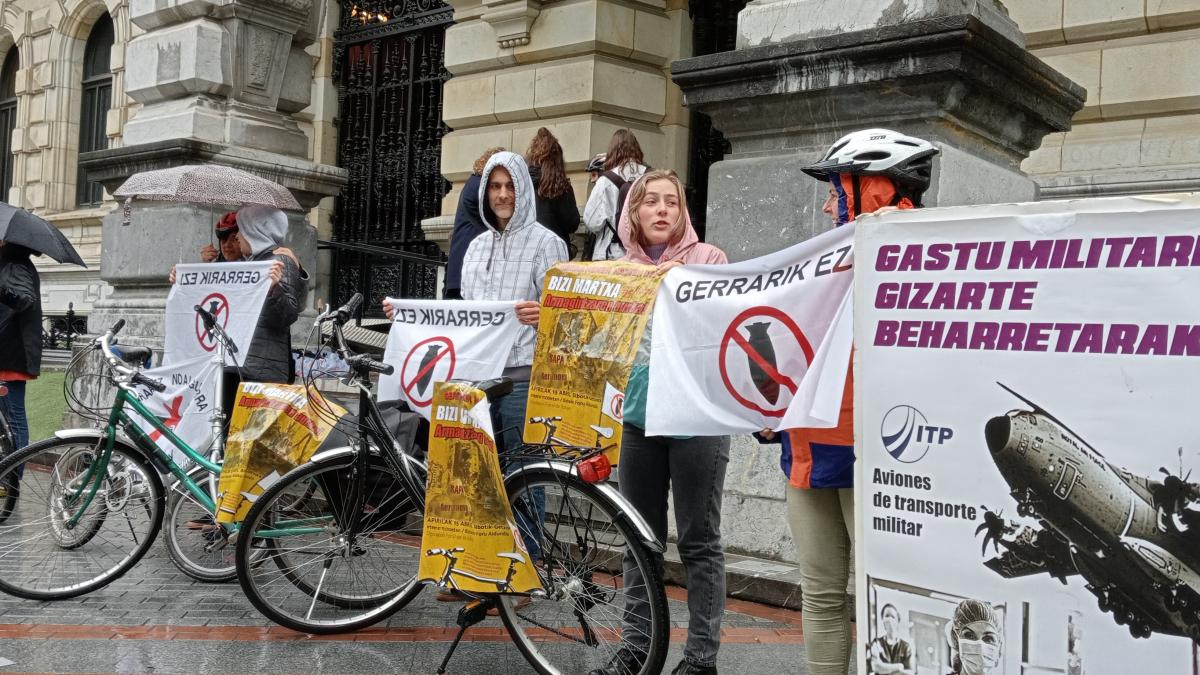Society
Environment
Politics
Economy
Culture
Basque language
Feminism
Education
International
Opinion
sunday 27 april 2025
Automatically translated from Basque, translation may contain errors. More information here. 
Nine Myths of the Mexican Drug War
- One of the important news of this summer can be the Vienna Document: Fernando Henrique Alonso, Ernesto Zedillo and César Gaviria, former presidents of Brazil, Mexico and Colombia, will demand the decriminalization of drug use. It will be explained that the famous war against drug trafficking has been a big mistake.
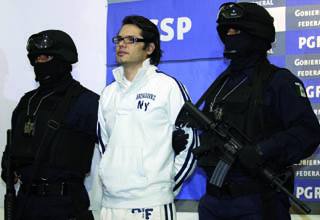
Mexikoko gobernuak narkotrafikoaren kontrako gerran lortutako kolpe historikoen artean aipatzen da 2009ko apirilean Vicente Carrillo Leyva "El Ingeniero"ren (Infosur agentziaren argazkian) atxiloketa. Ordura arte bera buru zuen Juarezeko kartelak hilean AEBetara 20-30 tona marihuana eta beste hainbeste kokaina pasatzen omen zuen. Agintariek Carrillo Mexikoko 40 gaiztagin bilatuenen zerrendan zeukaten, hura atxilotzeko bidea irekitzen zuenari 2,1 milioi dolarreko saria aginduz. Kolonbiarekin aspaldi urratutako bideari segituz, Washingtongo agintariek narko mexikarren estradizioa ere eskatzen dute; ez dugu inon aurkitu Vicente Carrillo entregatu dietenik. Narkotrafikoaren kontrako gerrarekin gauzak gaiztotu egin dira urteotan Mexikoko karriketan. Azken finean, AEBetan droga berdin kontsumitzen da, eta kriminaliatea da Mexikok ateratzen duen errenta bakarra.
Mario Ojeda Gomez has been president of the Mexican medical association. Last February he published an article entitled A war without end in a contrarian sense, claiming new paths as the war declared by that country to drug trafficking was lost.
“The war against drug trafficking – writes Ojeda – is three years old. The death toll, most of which occurred during gang clashes, is over 15,000. The army, which according to the polls is approved by the majority of society, has received complaints of human rights violations. In the meantime, drug consumption in Mexico has increased, drug trafficking to the United States has not decreased, nor has the import of weapons from there to us.” Dr.
Ojeda acknowledges that many believe that Presidio Felipe Calderón declared war on the narcos by mobilizing the army to improve the mediocre image left by the very controversial victory of the elections. But it cannot be said that Ojeda is an anti-system militant: it is a shame that the Mexican from Ararte has investigated and denounced the demasias committed by the military in the war against drug trafficking.
But there comes a time in Mexico where even law-abiding people are beginning to get tired of the terrible consequences of the war on drugs. The rulers are not losing this war, but they cannot win it. And what’s worse, the U.S. in the neighborhood doesn’t get involved as it should because they don’t have it as their problem. In the end, Mexico puts the bad image of the state, thousands of deaths, a terrible political turmoil. On the other hand, in the United States, consumption is still intact; what is worse, the gringos do not put barriers to the trafficking of arms from the United States to Mexico.
There are more and more people who demand the legalization of drugs, with different nuances, but legalization. Mario Ojeda himself recalls that from 1919 to 1927, when all alcohol, including beer, was banned in the United States in Chicago, where 250 gangsters were killed, Al Capone came to possess 700 gunmen under his command. And when it was judged that this bloodshed did not serve to make alcohol disappear, the U.S. authorities dismantled the ban in 1933. “The black market and violence disappeared,” writes Dr. Ojeda, “and the United States was not filled with alcohol.” The need to decriminalize drugs has been internalized in the most luminous minds of the South American elites, and this month in Vienna three former presidents from Brazil, Mexico and Colombia were to present their proposal to penalize drug use, taking advantage of
a congress on AIDS.
It is curious to read to a conservative politician like Carlos Henrique Cardoso in El País: “The war on drugs doesn’t work. We need a new recipe.” The problem is that illegalization is entrenched in prejudices and myths deeply rooted in the brains of the population. It's going to be hard to get rid of them.
It is still frequently mentioned, when the famous battle against drugs is in question, the following role that the economist and professor of Madrid, Carlos Resa Nestares, launched in 2005:Nine Drug Trafficking Myths in Mexico (from a non-exhaustive list). Unproven is the long road that superstitions can take.
“The illegal drug trade threatens the security of the nation.” Most authorities have been heard in Mexico. Resa believes that the battle language is used to achieve other objectives, whether they are to delight the gringos, to explain the subject in a preoccupied manner or, above all, to involve the military.
“The drug trade is one of the pillars of the Mexican economy,” says Professor Resa. In the 2000 data, it represented only 0.5% of the Mexican Gross Domestic Product. To this should be added, says Resa ironically, everything that both the media and the security forces bill for the drug bill.
“The drug economy is expanding without interruption.” There is no evidence to support this. In contrast, the trend in the US market is reversed: marijuana users account for half of those in the 1970s, cocaine use has declined sharply, and the former heroin epidemic has not resurfaced. Mexican drug exports declined from 1990 to 2000.
“The 9/11 attacks had repercussions on the Mexican drug industry.” This is not shown in the statistics.
“The capture of drugs by the police has consequences for the drug market.” Much has been said about the fact that the repression has caused prices to rise. In Resa’s calculations, traffickers increase production to ensure that they sell at the old price. Consequently, if it does not affect the price and does not affect consumption, the only fruit of the repression is the filling of the prisons.
“Drug violence occurs because traffickers want to control territories.” This seems to be a myth created by the films, because Resa believes that “the export of drugs is the most anti-territorial issue.” Traffickers monopolize customers, not territories. In any case, the territory is the area that a corrupt police officer or official transfers to the trafficker.
“The drug industry is primarily responsible for the violence that Mexico suffers.” Taking into account the data from 2004 – have things changed so much since then? – Resa shows that statistics on violent deaths do not include this. It is true that in the world of drug trafficking violence is very brutal, since the trafficker does not have an official guarantee to collect it because he has to show strength, but it is also not convenient for him to scare away his customers. Comparing the state with forced death rates, he sees in front of the lists some that have nothing to do with drug trafficking, such as Guerrero, Chiapas and others.
“The U.S. government authorized the cultivation of drugs in Mexico during World War II.” Most of Mexico’s drug trafficking stories begin by telling us how in the Sinaloa Mountains they started planting poppies to sell morphine to the gringos for war wounded. It is also said to be without proof of myth. In reality, to explain Mexico’s role as a drug supplier to the United States, there is no need to resort to conspiracies: the gringos are the wealthy consumers, the Mexicans are the poor farmers, and the intermediaries who assume the risks of transportation.
Myths, as Mario Ojeda mentioned at the beginning points out, the more the U.S. fences its way to drugs, the more brutality in Mexico grows. So, Ojeda asks to finish, who benefits from this war?
For more information:
- Mario Ojeda Gómez "El combate al narcotráfico: guerra sin fin en sentido contrario" -
"Nine Myths of Drug Trafficking in Mexico (from
a non-exhaustive list)" -
In the newspaper La Jornada, the United Nations says that there is no end to drug trafficking -
the war against drug trafficking in Mexico on Wikipedia, in Spanish -
In English (much more complete)
- "The war with Cardinal Carthus, the dialogue with Cardinal Cesano in the Vienna Drug Policy magazine,"
“The war against drug trafficking – writes Ojeda – is three years old. The death toll, most of which occurred during gang clashes, is over 15,000. The army, which according to the polls is approved by the majority of society, has received complaints of human rights violations. In the meantime, drug consumption in Mexico has increased, drug trafficking to the United States has not decreased, nor has the import of weapons from there to us.” Dr.
Ojeda acknowledges that many believe that Presidio Felipe Calderón declared war on the narcos by mobilizing the army to improve the mediocre image left by the very controversial victory of the elections. But it cannot be said that Ojeda is an anti-system militant: it is a shame that the Mexican from Ararte has investigated and denounced the demasias committed by the military in the war against drug trafficking.
But there comes a time in Mexico where even law-abiding people are beginning to get tired of the terrible consequences of the war on drugs. The rulers are not losing this war, but they cannot win it. And what’s worse, the U.S. in the neighborhood doesn’t get involved as it should because they don’t have it as their problem. In the end, Mexico puts the bad image of the state, thousands of deaths, a terrible political turmoil. On the other hand, in the United States, consumption is still intact; what is worse, the gringos do not put barriers to the trafficking of arms from the United States to Mexico.
There are more and more people who demand the legalization of drugs, with different nuances, but legalization. Mario Ojeda himself recalls that from 1919 to 1927, when all alcohol, including beer, was banned in the United States in Chicago, where 250 gangsters were killed, Al Capone came to possess 700 gunmen under his command. And when it was judged that this bloodshed did not serve to make alcohol disappear, the U.S. authorities dismantled the ban in 1933. “The black market and violence disappeared,” writes Dr. Ojeda, “and the United States was not filled with alcohol.” The need to decriminalize drugs has been internalized in the most luminous minds of the South American elites, and this month in Vienna three former presidents from Brazil, Mexico and Colombia were to present their proposal to penalize drug use, taking advantage of
a congress on AIDS.
It is curious to read to a conservative politician like Carlos Henrique Cardoso in El País: “The war on drugs doesn’t work. We need a new recipe.” The problem is that illegalization is entrenched in prejudices and myths deeply rooted in the brains of the population. It's going to be hard to get rid of them.
A war for whose benefit?
It is still frequently mentioned, when the famous battle against drugs is in question, the following role that the economist and professor of Madrid, Carlos Resa Nestares, launched in 2005:Nine Drug Trafficking Myths in Mexico (from a non-exhaustive list). Unproven is the long road that superstitions can take.
“The illegal drug trade threatens the security of the nation.” Most authorities have been heard in Mexico. Resa believes that the battle language is used to achieve other objectives, whether they are to delight the gringos, to explain the subject in a preoccupied manner or, above all, to involve the military.
“The drug trade is one of the pillars of the Mexican economy,” says Professor Resa. In the 2000 data, it represented only 0.5% of the Mexican Gross Domestic Product. To this should be added, says Resa ironically, everything that both the media and the security forces bill for the drug bill.
“The drug economy is expanding without interruption.” There is no evidence to support this. In contrast, the trend in the US market is reversed: marijuana users account for half of those in the 1970s, cocaine use has declined sharply, and the former heroin epidemic has not resurfaced. Mexican drug exports declined from 1990 to 2000.
“The 9/11 attacks had repercussions on the Mexican drug industry.” This is not shown in the statistics.
“The capture of drugs by the police has consequences for the drug market.” Much has been said about the fact that the repression has caused prices to rise. In Resa’s calculations, traffickers increase production to ensure that they sell at the old price. Consequently, if it does not affect the price and does not affect consumption, the only fruit of the repression is the filling of the prisons.
“Drug violence occurs because traffickers want to control territories.” This seems to be a myth created by the films, because Resa believes that “the export of drugs is the most anti-territorial issue.” Traffickers monopolize customers, not territories. In any case, the territory is the area that a corrupt police officer or official transfers to the trafficker.
“The drug industry is primarily responsible for the violence that Mexico suffers.” Taking into account the data from 2004 – have things changed so much since then? – Resa shows that statistics on violent deaths do not include this. It is true that in the world of drug trafficking violence is very brutal, since the trafficker does not have an official guarantee to collect it because he has to show strength, but it is also not convenient for him to scare away his customers. Comparing the state with forced death rates, he sees in front of the lists some that have nothing to do with drug trafficking, such as Guerrero, Chiapas and others.
“The U.S. government authorized the cultivation of drugs in Mexico during World War II.” Most of Mexico’s drug trafficking stories begin by telling us how in the Sinaloa Mountains they started planting poppies to sell morphine to the gringos for war wounded. It is also said to be without proof of myth. In reality, to explain Mexico’s role as a drug supplier to the United States, there is no need to resort to conspiracies: the gringos are the wealthy consumers, the Mexicans are the poor farmers, and the intermediaries who assume the risks of transportation.
Myths, as Mario Ojeda mentioned at the beginning points out, the more the U.S. fences its way to drugs, the more brutality in Mexico grows. So, Ojeda asks to finish, who benefits from this war?
For more information:
- Mario Ojeda Gómez "El combate al narcotráfico: guerra sin fin en sentido contrario" -
"Nine Myths of Drug Trafficking in Mexico (from
a non-exhaustive list)" -
In the newspaper La Jornada, the United Nations says that there is no end to drug trafficking -
the war against drug trafficking in Mexico on Wikipedia, in Spanish -
In English (much more complete)
- "The war with Cardinal Carthus, the dialogue with Cardinal Cesano in the Vienna Drug Policy magazine,"
Most read
Using Matomo
#1
#2
Onintza Irureta Azkune
#5
Urko Apaolaza
Newest
2025-04-25
Onintza Irureta Azkune
Identified the Basques in Osakidetza: a step on the way to guarantee arta in Basque?
Hospitalized patients will wear the “e” symbol on their wrist. The health workers know that these people have asked to be cared for. Osakidetza says it is another tool to facilitate communication in Basque. It’s one more step in a larger project. The main objectives of... [+]
"As a result of the HAPO approved by the City Council, Kabia is in an unstable situation"
Activities to commemorate the 19th anniversary of the occupied area of Kabia will be held from today to Sunday, from 24 to 26 April. This self-managed space, which is about to turn two decades old, has suffered several setbacks in its trajectory, and although it is threatened by... [+]
2025-04-25
Euskalerria irratia
Anesthesia, among the new predictions of Delirium Tremens, Zea Mays, Talco, Zetas and Naxker Hatortxu Rock
24 new bands have been announced by the Hatortxu Rock solidarity festival. 63 teams have already been announced and in total there will be 100 teams in the five stages of the festival.
2025-04-25
Gorka Intxausti Aranguren
The Transparent Beings
When the song rained
Transparent Beings
When: April 20th.
In which: In the Plaza of the Castle of Pamplona.
-----------------------------------------------
The concert is only half an hour away in the Plaza del Castillo de Pamplona; but it is still half empty, because it is raining. Whether... [+]
2025-04-25
Eneko Imaz Galparsoro
Trump asks Putin to stop, and Russia says it’s almost ready for peace deal
After accusing Zelenski of “endangering” the peace deal that should end the war in Ukraine, Trump has reprimanded Putin on his social network Social Truth. Foreign Minister Sergei Lavrov said that Russia is ready to conclude a peace agreement. Kiev reports that the body of a... [+]
2025-04-25
Olaia L. Garaialde
Citizens of the Uribe Coast claim the need for a public day center
It is the only region in Bizkaia that does not have a public day centre. The meeting will take place on April 27 at 12:00 in the Town Hall Square in Sopelana (Bizkaia).
2025-04-25
Jenofa Berhokoirigoin
The daughter of the French prime minister also denounces that she was "brutally beaten" at the Betharram school
Helene Perlante, daughter of François Bayrou, testifies in the book Le silence de Bétharram (The Silence of Betharram), written by Alain Esquer. In the Catholic school that existed in the 1980s, students and for forty long years have been silently held back by the violence... [+]
2025-04-25
Urko Apaolaza Avila
The analysis
We're all on the chain
On January 29, something that we are not accustomed to in today’s selfish world happened at the gates of the Guardian factory in Laudio. The management showed its intention to shut down the oven there, and to counter this, the workers blocked the door by means of banners. But... [+]
2025-04-24
Xabier Letona Biteri
The Spanish government withdraws its purchase of Israeli bullets
The President of the Spanish Government, Pedro Sánchez, has ordered the cancellation of the bullet purchase made by the Spanish Ministry of the Interior with the Israeli company IMI Systems. The decision eases the risk of rupture in the government coalition between the PSOE and... [+]
2025-04-24
Jenofa Berhokoirigoin
This year’s Popular Step will be held under the motto ‘Elgar’ on May 11th
2025-04-24
Unai Lomana Uribezubia
A bicycle march in Bilbao to denounce the increase in military budgets
The bicycle march will start from Bilbao and pass in front of the companies ITP Aero in Barakaldo and Sener in Getxo, because these two companies "are in charge of military production", according to the organizers. It will be a protest to denounce the increase in arms spending... [+]
A Busy Day of Pastors, in Ordizia
This year around 1,500 sheep have crossed the Gran Vía, divided into five herds. The official presentation of the new season of Idiazabal Cheese has been held at the City Hall. The cheese has been cut by Julen Baze and Peli Pérez de Anuzita from Restaurante Garena.
Eguneraketa berriak daude












